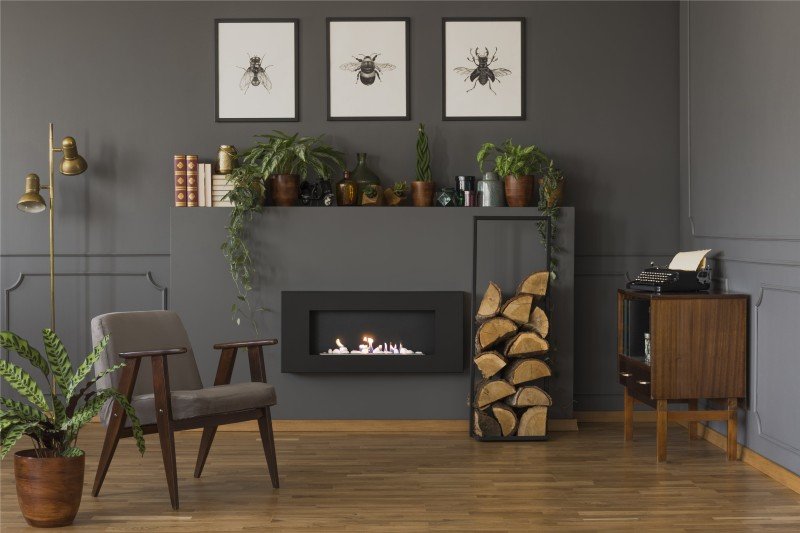The Best Fireplaces: A Comprehensive Guide for Homeowners
Fireplaces have long been a beloved feature in homes, providing both warmth and a welcoming atmosphere. They can be found in numerous styles, sizes, and fuel types, enabling house owners to select one that fits their individual aesthetic and heating needs. Fireplace Deals looks into the very best fireplaces, highlighting essential functions and considerations to help you make a notified decision.
Kinds of Fireplaces
Comprehending the various types of fireplaces is vital in picking the best choice for your home. Below are the most typically utilized fireplaces:
Wood-Burning Fireplaces
- Benefits: Traditional appeal, natural atmosphere, and efficient heating.
- Downsides: Requires regular maintenance, ash disposal, and is subject to local policies concerning emissions.
Gas Fireplaces
- Benefits: Convenient, clean-burning, and simple to operate.
- Disadvantages: Requires a gas line, can be more costly to install at first.
Electric Fireplaces
- Advantages: Easy installation, low upkeep, and the most safe choice for homes with children or pets.
- Downsides: Lack the authentic feel of wood or gas flames, may not warm large spaces successfully.
Pellet Stoves
- Benefits: Eco-friendly, effective, and offer a steady heat output.
- Drawbacks: Requires electrical energy to operate, and pellet supply can be limited in some locations.
Ethanol Fireplaces
- Benefits: No chimney needed, portable, and eco-friendly.
- Downsides: Generally less effective for heating.
A Comparison of Fireplace Types
| Type | Installation Cost | Running Cost | Heat Output | Upkeep | Ecological Impact |
|---|---|---|---|---|---|
| Wood-Burning | ₤ ₤ | ₤ | High | High | Moderate |
| Gas | ₤ ₤ ₤ | ₤ ₤ | Medium-High | Low | Moderate |
| Electric | ₤ | ₤ ₤ | Low | Extremely Low | Low |
| Pellet | ₤ ₤ | ₤ | Medium | Medium | Low |
| Ethanol | ₤ ₤ | ₤ ₤ ₤ | Low | Extremely Low | Extremely Low |
Leading Considerations When Choosing a Fireplace
When you're in the marketplace for a brand-new fireplace, keep the following consider mind to guarantee you choose the very best one for your home:
- Purpose and Functionality: What do you want your fireplace to do? Is it for heating or visual appeals? This will assist your choice considerably.
- Space Availability: Measure the area where you want to install the fireplace. Make sure the chosen type fits without frustrating the space.
- Fuel Source: Assess the availability and cost of different fuel sources in your area to avoid unforeseen expenses.
- Setup Complexity: Some fireplaces might require considerable modifications to your existing home structure.
- Building Regulations and Regulations: Be mindful of regional laws relating to ventilation, security, and emissions, as these can influence your fireplace choice.
- Visual Appeal: The style and design of a fireplace can work as a centerpiece or enhance the existing decor, so select one that enhances your home's general visual.
Benefits of a Fireplace
Adding a fireplace to your home manages numerous benefits:
- Enhanced Aesthetic Appeal: A fireplace can raise the decor of any room, creating a cozy and inviting atmosphere.
- Increased Home Value: A well-installed fireplace can add considerable value to your home, making it interesting potential purchasers.
- Energy Efficiency: Modern fireplaces, especially gas and pellet ranges, can provide reliable heating while reducing energy expenses.
- Emergency Heat Source: In cases of power failures, a wood or gas fireplace can function as a reliable heat source.
- Celebration Space: Fireplaces typically become the focal point for events, promoting heat and convenience throughout household or good friends' parties.
Frequently Asked Questions (FAQs)
Q: How much does it cost to install a fireplace?A: Installation costs can differ substantially based upon the kind of fireplace, structural requirements, and labor costs. Basic electric fireplaces may cost around ₤ 300, while custom-built wood or gas fireplaces can range from ₤ 3,000 to upwards of ₤ 10,000. Q: Are electric fireplaces safe?A: Yes, electric
fireplaces are generally safe.
They do not emit carbon monoxide gas and have no open flames. They often consist of security features like automated shut-off systems. Q: How typically ought to I have my chimney cleaned?A: If you utilize a wood-burning fireplace, it's advised to have your chimney cleaned at least when a year
to avoid creosote accumulation, which can result in chimney fires. Q: Can I install a gas fireplace myself?A: It's not advisable to set up a gas fireplace without professional help due to the complexities related to gas
lines, ventilation, and security guidelines. Q: What are the best types of fuel for wood-burning fireplaces?A: The best fuel options consist of well-seasoned hardwoods like oak, maple, or hickory, as they burn hotter and cleaner compared to softwoods. Selecting the very best fireplace for your home
includes thinking about lots of aspects, from looks to function and safety. Each kind of fireplace has its distinct advantages and possible disadvantages.
Comprehending these aspects, in addition to your individual heating needs and budget plan restrictions, will direct you in making a notified decision. Eventually, a fireplace can supply not just heat but also a rich ambiance, changing your home into an inviting sanctuary.

